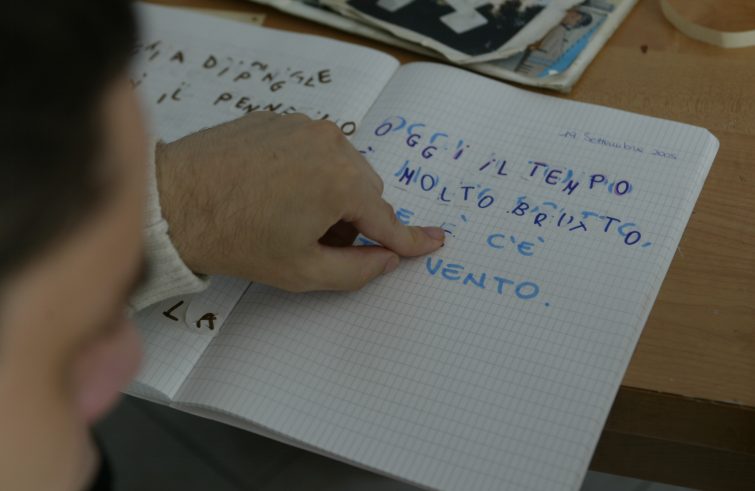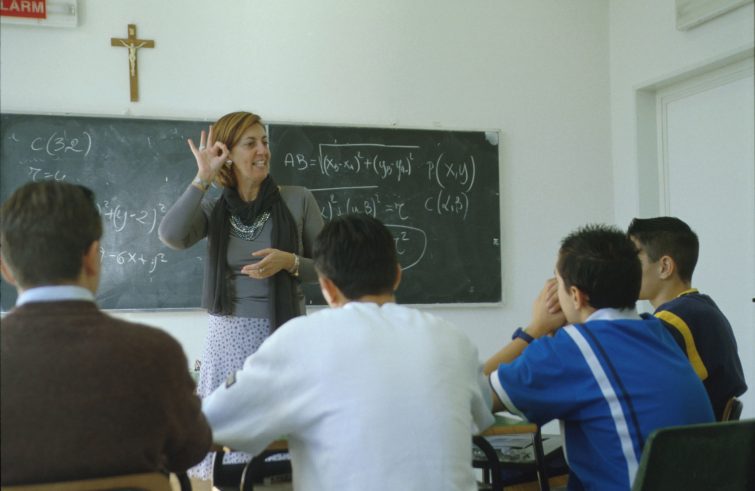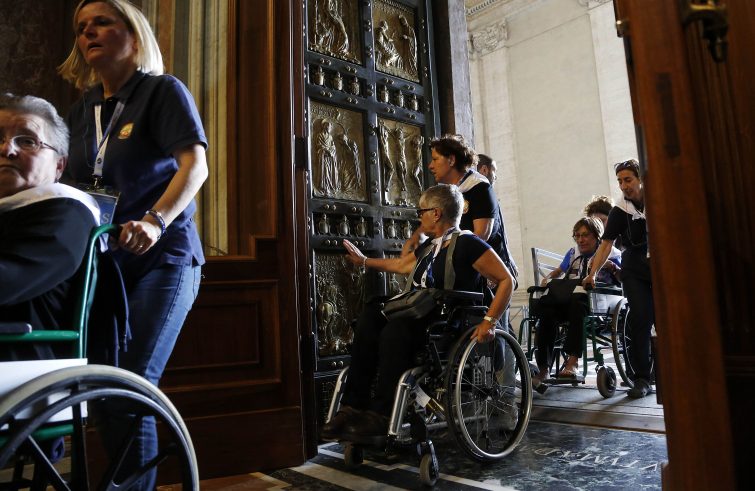
“The church can make a real difference by being a safe and welcoming place, which is also a message to the rest of the community that people with disabilities deserve the same respect and dignity as anyone else”, said Bill Gaventa, one of the world’s leading experts on disability and spirituality, founder of the Summer Institute on Theology and Disability, and Director of the Collaborative on Faith and Disability. Gaventa will deliver the lectio magistralis at the national conference ‘Us, not them. The project of life’, promoted by the National Service for the Pastoral Care of Persons with Disabilities of the Italian Bishops Conference (Rome, June 1-3)
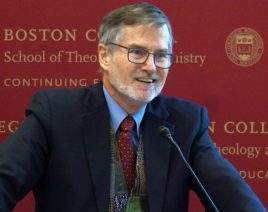 When and why did you first become involved with the world of disability?
When and why did you first become involved with the world of disability?
I was doing a year of Clinical Pastoral Education in a hospital in North Carolina after seminary and was assigned, for a small part of my time for the year, to a new training clinic for families with children with disabilities. There was no automatic role for a chaplain, so I just had to start talking with families while they were there, and hearing about their experiences with their churches and their faith communities.
Most of the stories I heard were ones of neglect or exclusion from their churches. That touched a deep nerve in me, and began my commitment to ministries with people with disabilities and their families and to helping churches be more welcoming, inclusive and supportive.
Much progress has been made towards greater acceptance and inclusion over the past few years. Yet while often there is a great sensitivity to the needs of disabled persons and their families, the role of spirituality is still underestimated…
I wonder if they often see them as people who need help, prayer, and support, rather than as people of faith themselves, people who want to participate and contribute to the life of the church as others. Or, in other words, Jesus calls them to be disciples as well, not simply to be the recipients of care from others. Disability also raised profound spiritual and theological questions for most Christians that are not easy to face and to answer. Most people with disabilities and their families that I know do not want to be seen and treated as some kind of ‘special people’.
And what do they want?
They want to be included, to have the same chances to learn and to serve, to be givers as well as receivers, to have valued roles in faith settings, possibly as leaders, and even as religious leaders. In other words, they have the same spiritual questions, needs, and longings as anyone else.
A church can be sensitive to the “needs of disabled persons and their famoilies,” but is the church also sensitive to “the strengths and gifts.”
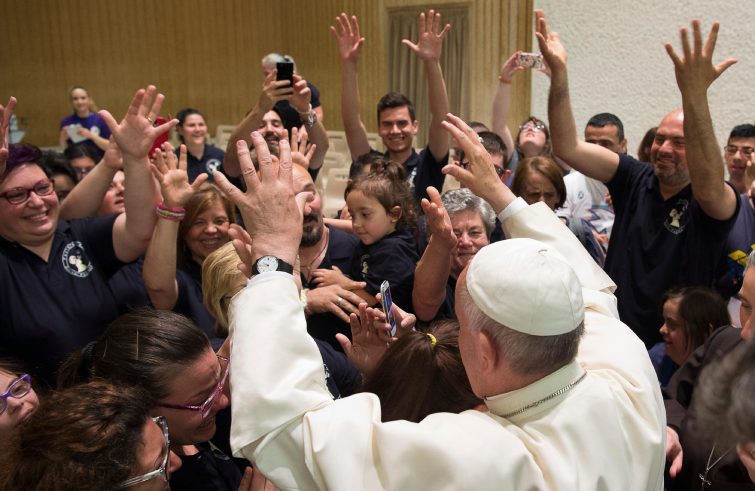
Do faith communities play an important role?
The role of faith communities with people with disabilities and their families should be the same as it is with anyone else: to welcome, include, teach, baptize, support, evangelize. Most faith communities do not realize that what people with disabilities and their families most value is to be included and treated as everyone else, which means that
churches can make a real difference in their lives.
Given the fact that there are many negative social attitudes about people with disabilities, fears, and prejudices, the church can make a real difference by being a safe and welcoming place, which is also a message to the rest of the community that people with disabilities deserve the same respect and dignity as anyone else.
There is also a problem of loneliness…
Most people with disabilities have very few friends outside of family and professional helpers. Loneliness is a huge issue. There are also practical helps, such as places for groups working in disability to meet, perhaps supporting families to give caregivers some respite care, and other practical ways that churches help others.
Why are the notions of disability and spirituality related to one another?
If one tries to understand what disability is and means, you end up realizing that so many dimensions of disability are shaped by personal social and cultural attitudes and assumptions about disability and what it means, or, in other words, you end up in the world of spirituality, where questions of value, faith and meaning are paramount. Conversely, if you start off trying to understand spirituality, you end up in situations where spiritual questions come to the forefront of our awareness, and raised most starkly, and those are times where we experience vulnerability, finitude, limitations, and more.
Death, suffering, disease, war, poverty, injustice…have all been places where spiritual questions come to the forefront, where the “normal” and “typical” don’t work. Disability is one of them.
- (Foto Siciliani-Gennari/SIR)
- (Foto Siciliani-Gennari/SIR)
There is a tendency to view faith as requiring intellectual understanding. This means that people with intellectual disabilities have no access to it. Is that really the case?
Absolutely not. We do not keep children away from church because they do not have the cognitive ability to understand what is being proclaimed or done. Faith is much more related to a committed relationship with Jesus and God than it is to theological understanding. What the church can do is teach to a person’s level of ability to learn, and then seek to understand how that person understands what it means to go to church, what God means to them, and more. That may be done with pictures, actions, gestures. The classic question around faith and intellectual understanding is whether or not people with intellectual disabilities should receive communion.
What is your answer to those who ask “Do they understand what it means?”?
Most people could not give you a coherent theological answer to that question, A survey in the United States among Roman Catholics found that more than half did not get the doctrinal understanding right.
A sacrament, by definition, includes mystery, and participation in the Eucharist is an act of being welcomed to the Lord’s table, an act of inclusion, an affirmation that we are all of the same body, and more.
No one is exluded…
Many people with intellectual and developmental disabilities can have unique insights into faith if we but give them the opportunity to participate, assume they can learn at their own level, listen to their questions, and ask them why, for example, they think it is important to go to church. There have been hundreds of moments of revelation for me in my work in this arena.
Is it time to focus on spirituality also in the context of the life project?
The health and human sciences world pays so little attention to the importance of spirituality that they lose a great resource in treating people holistically. That comes from many reasons: not being trained to understand or ask about spirituality, also thinking that spirituality means cognitive ability and thus does not apply, and hearing stories of mistreatment of people with disabilities by faith communities. It is time to get over that and collaborate together.
Helping people with intellectual and developmental disabilities to cope with all the challenging, difficult moments in life.
People with intellectual and developmental disabilities and their families and friends must be helped to cope with times of loss, grief, and death. Like faith, some people think people with intellectual and developmental disabilities (IDD) cannot understand death, as if any of us really does. Or that they should be protected from loss and grief. Yet they live in a world of relationships where loss and grief happens all the time, and they need to be included in the acts and rites of mourning and bereavement as well. And sometimes are much better at it than the rest of us.

